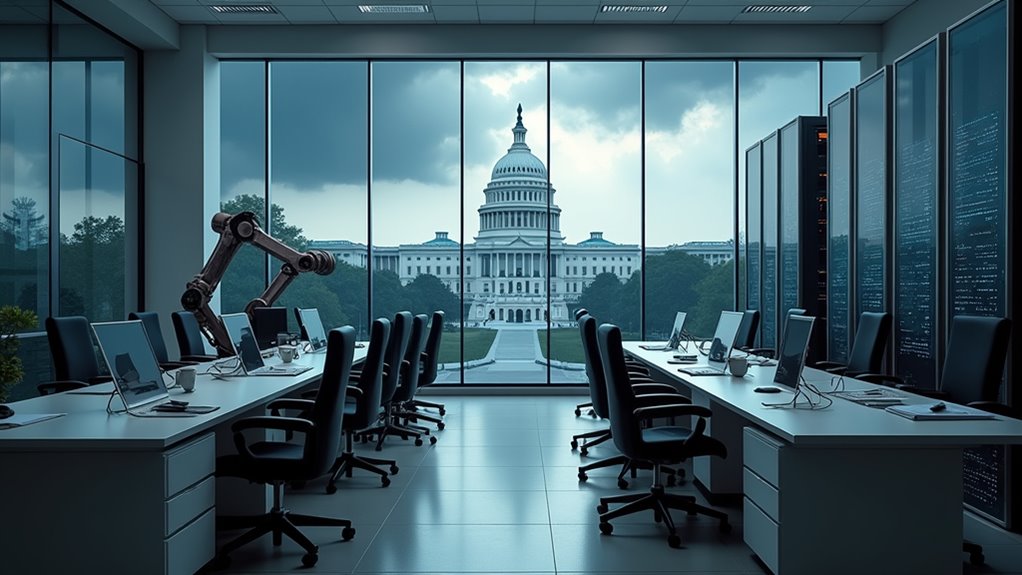DOGE allowed a college student to rewrite federal laws with AI due to the Swiss cheese regulatory landscape for artificial intelligence. With no thorough federal oversight and limited data provenance legislation, universities have embraced such experiments as educational opportunities for responsible AI literacy. The student’s project exposed how synthetic content can appear plausible while highlighting AI’s limitations in legal contexts. Turns out, when regulatory vacuums meet academic curiosity, federal statutes become digital playgrounds.
While legislators continue to debate the boundaries of artificial intelligence regulation, a college student armed with nothing but DOGE—the Digital Output Generation Engine—has already rewritten portions of federal law without breaking a single rule. Yes, you read that correctly. In the regulatory Wild West that is AI policy in America, this scenario wasn’t just possible—it was practically inevitable.
The legal landscape surrounding artificial intelligence resembles Swiss cheese: full of holes. With federal coordination lagging behind technological advancement, the regulatory vacuum has created a perfect environment for bold experimentation. In 2023 alone, 25 states introduced AI-related legislation, yet extensive federal guardrails remain conspicuously absent.
AI regulation remains as porous as Swiss cheese while technology races ahead, creating a playground for digital experimentation.
This regulatory ambiguity has become fertile ground for academic exploration. Universities actively encourage students to push AI’s boundaries, viewing these tools as educational opportunities rather than potential threats. When our intrepid student decided to feed federal statutes into DOGE and ask for “improvements,” there was no explicit rule saying they couldn’t. This situation highlights how limited attention is given to data provenance legislation, which accounts for only about 1% of current AI laws.
The experiment serves multiple purposes beyond just making lawmakers nervously adjust their ties. By allowing students to manipulate legal frameworks through AI, institutions effectively create living laboratories for responsible AI literacy. Nothing teaches the limitations of machine learning quite like watching it confidently misinterpret the nuances of constitutional law. This academic approach aligns with how states like North Carolina are promoting the rethinking of plagiarism concepts in the context of artificial intelligence.
These projects also brilliantly highlight the urgent need for thoughtful regulation. When AI-rewritten laws look plausible enough to fool casual readers, it raises uncomfortable questions about information integrity in an age of synthetic content. Despite these concerns, approximately half of Americans remain optimistic about AI’s potential benefits to society.
Perhaps most importantly, such high-visibility stunts catalyze public conversation. Media coverage of a college student “playing Congress” with an algorithm generates more meaningful dialogue about AI governance than another closed-door committee meeting ever could.









